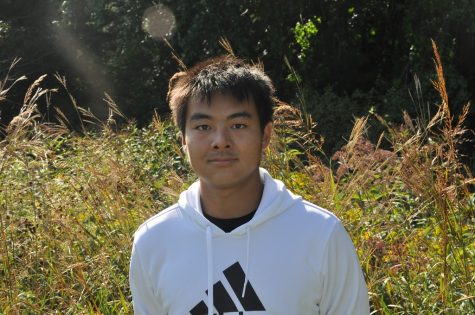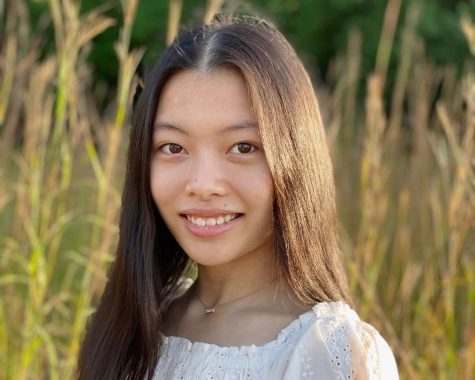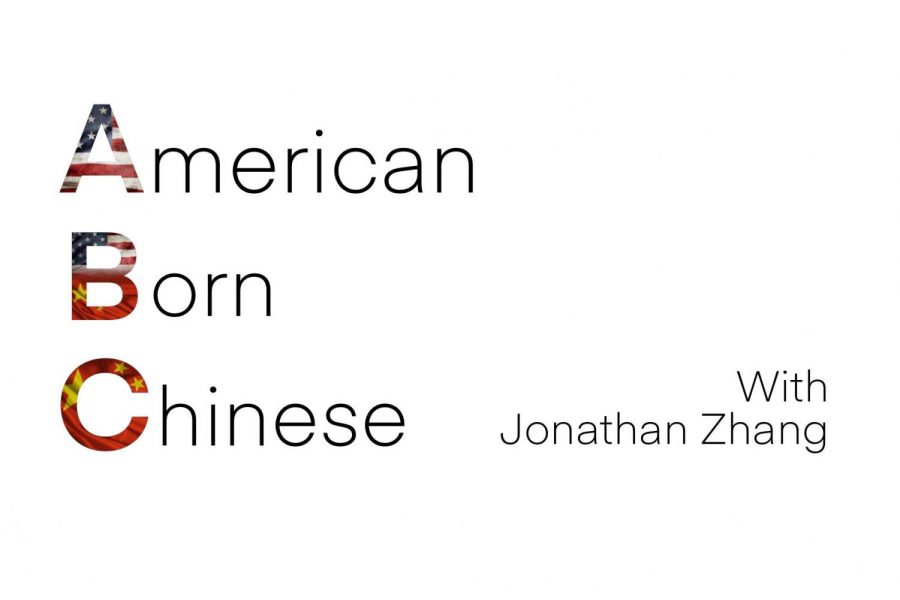ABC: American or Chinese?
Credit: Elizabeth Zhong
In the latest installment of ABC: American Born Chinese reporter Jonathan Zhang analyzes the importance of visiting China for one’s identity.
As a Chinese-American, there are times when I wonder which of my two nationalities I really am. When I’m at home, I feel like I’m Chinese: I speak Chinese, eat Chinese food, celebrate Chinese holidays and conform to Chinese customs and traditions. Once outside of my home, however, it’s like I’m a different person: I speak English, eat American food and celebrate American holidays while learning about the history of the United States.
However, after learning about the history of the United States, about my “ancestors” that fought for our freedom and shaped our country into what it is today, I feel like I’m an imposter.
Not once has a mere mention of Asians appeared in my history classes so far. My true ancestors weren’t the great colonists that fought for their freedom against one of the most powerful nations of the time nor were my ancestors of European descent at all.
That feeling of not belonging tears at you until you start to question your very existence. My parents were both born and raised in mainland China – my mom is from Sichuan and my dad is from a city near Shanghai. It would be twenty years before they moved to the United States, attended college and later had me.
Throughout the earliest years of my childhood, I don’t think I ever once questioned, worried about or even thought about my identity at all. I was just another kid trying to live out my life. I didn’t view myself as different from the other students in my class at all.
Only later during my elementary school years would I start to realize the difference between me and my peers following seemingly insignificant things. I remember there was one instance where my friends were talking about how much they loved Chinese food and told me I was lucky that I got to eat it every day. I went home that day feeling oddly singled out simply for being Asian.
That all changed after the summer of fifth grade when I made my first trip to China. During the long plane flight, I started to really question my identity for the first time. I could speak Chinese and I knew enough about the culture that I could probably blend into Chinese society just fine.
On the other hand, I’d never been to a place where my identity as an American would simply vanish. In China, I would be just another Chinese person and to be honest, this terrified me. The thought of losing something that I’d had since I was born scared me.
I started to ask myself: “what does it even mean to be American?” What was I even giving up in the first place? When we finally arrived in China, I didn’t feel like an imposter: I felt at home. I was surrounded by family other than my parents for the first time. No longer was I the Asian kid or the imposter. I was now another normal person in my society. There was nothing special about me anymore. I was simply normal, and I liked that.
During my stay in China, I no longer had to switch between being Chinese and being American. For the first time, I could embrace my Chinese identity and feel good about it. It was like the feeling after you get an x-ray and the lead blanket is lifted off your chest.
More importantly, without having to worry about my identity all the time, I could embrace the present and what was going on around me. Previously, I’d always viewed my identity as an American as being more important than my identity as being Chinese because I was always surrounded by other Americans. In America, I was part of the Great American Melting Pot, a phenomenon where an ethnically diverse group of people start to blend and become more similar to each other. People are encouraged to become more “American” and give up what makes them different. But now, I started realizing that my Chinese identity is something that I shouldn’t neglect. It’s something that represents my home and my ancestry.
When I got back to America, I realized that I didn’t need to worry about being “American.” I’m American no matter what I do or how I express myself. It just so happens that I’m different because I’m also Chinese and being different isn’t always a bad thing. After all, it makes us who we are.
Your donation will support the student journalists of Wayland High School. Your contribution will allow us to purchase equipment, cover our annual website hosting costs and sponsor admission and traveling costs for the annual JEA journalism convention.

Jonathan Zhang, Class of 2022, is a third year reporter and managing editor of WSPN. For the high school, he acts as the junior varsity coach and co-captain...

Elizabeth Zhong, Class of 2021, is this year’s graphic designer for WSPN. She is the president of Student Council, co-President of the Tri-M Music Honor...





![Last Wednesday, the Wayland School Committee gathered to discuss a number of topics regarding the health curriculum and Innovation Career Pathway course. Another large topic of conversation was the ways to potentially mitigate distracting cell phone usage. "These [phones] are going to distract your learning and social relationships," Superintendent David Fleishman said. "That's concrete right there."](https://waylandstudentpress.com/wp-content/uploads/2025/06/Screenshot-2025-06-04-at-9.49.31 PM-1200x886.png)
























Bryan Hill • Oct 11, 2021 at 8:39 PM
Hold up, is this one of those Asian American majority schools?
But it doesn’t seem like it since I googled the school name and it looked to be a high school in Massachusetts where to my knowledge there isn’t a particularly great amount of Asians unlike Milpitas, San Jose or the Bay Area of the West Coast.
I like in Salinas, CA BTW, I hope that doesn’t deanonymize me.